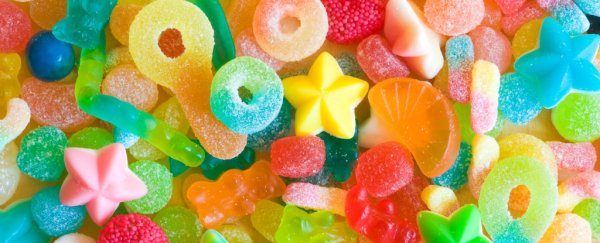Ever felt your brain a little sluggish a little while after eating sugar or a giant meal? You are probably feeling the effects of a sugar crash, which, new research shows, really can slow down your cognitive function.
In a double-blind, placebo-controlled study, participants demonstrated a delay in completing cognitive tasks after consuming glucose or table sugar, compared to participants that consumed fructose (fruit sugar) or artificial sweetener sucralose (the placebo). And fasting beforehand heightened this effect.
"I am fascinated by how our senses influence our behaviour and affect our everyday lives," said author Mei Peng of University of Otago told PsyPost. "In particular, how sugar consumption might change the way our brains work. In the case of sweetness perception, we have evolved to favour this taste."
Much research has gone into the effect glucose has on cognitive function. For people of all ages, the substance seems to have a positive effect on memory function - but tests on other cognitive functions, such as reaction time, attention, face recognition and working memory have returned, the study authors said, mixed results.
The effects of other sugars, such as fructose and sucrose, on cognitive function, are not as well understood. This is important because they are metabolised differently - fructose does not cross the blood-brain barrier as glucose does, but is metabolised in the liver, and sucrose is broken down into fructose and glucose, which are metabolised via their own pathways.
To determine the comparative effects of glucose, sucrose and fructose, the researchers recruited 49 college participants.
Over 16 weeks, these participants were divided into groups, and attended the same testing session every week for four weeks before changing groups. They did not know which group they were in. Some participants were instructed to fast for 10 hours prior to the test.
They were then given a drink which contained either glucose, sucrose, fructose or the placebo sucralose. After a 20-minute interval, they were given cognitive function tests - the same test, with the same questions in the same order for all participants.
These were designed to test information processing, executive function, and selective attention, all of which are associated with the prefrontal lobe. Their blood glucose levels were also measured with a finger prick test.
The test results showed that the participants who consumed glucose and sucrose were slower by a mean of up to 200 milliseconds, or 0.2 seconds, in answering questions. That may not sound like much, but given the highest mean was 921 milliseconds, it's a good percentage of the overall response time.
This suggests that there is such a thing as a "sugar coma" - at least for certain types of sugar - and that this is an area that requires further research.
"While the sample size is relatively small, the effect we observe is substantial," Peng said.
"Future research should further quantify how different brain regions change after sugar consumption - by using neuroimaging techniques. This will help us better understand how attention deficits arise after glucose consumption."
The research has been published in the journal Physiology & Behavior.
